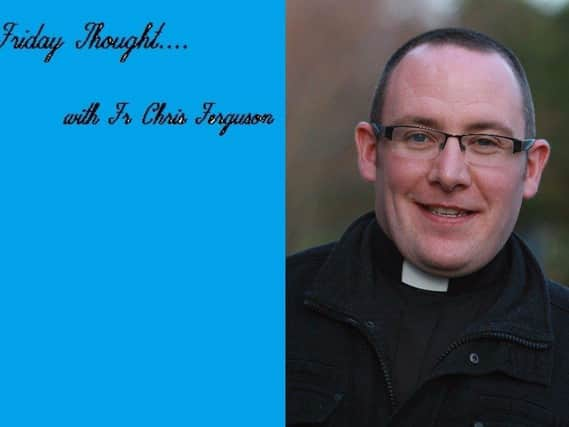Friday Thought with fr Chris Ferguson


In time I would read many of Mario Puzo’s Godfather related books, including one of his final publications, Omerta. As the title suggests the plot revolves around the Sicilian code of silence, forbidding any breach of secrecy regarding the affairs of the Family. Even in ordinary family life, we fear others knowing our news and secrets. I remember on one occasion as I was driving to my sister’s home, I spotted my nephew coming from the direction of the main road, surrounded by his friends. Making conversation with my sister, I mentioned I had driven past her son. Without thinking, I described how he was coming from the direction of the main road. I was duly informed; he had been grounded the week before for crossing the main road. Privately, I thought oops, I’m going to be popular. I have just dropped my nephew in it. I could already hear my sister explain to the child, how his uncle Christopher, spotted him in the vicinity of the main road. Of course, he’ll deny all wrongdoing. My nephew will either claim, I had gotten it wrong, especially as I couldn’t see properly over the steering wheel. Or he’ll claim I was lying, brought on by jealously because my nephew can ride a bike without stabilisers. If I had said nothing and something had happened to my nephew, you can imagine how I would have felt. This didn’t make me feel any better for having gotten him into trouble. Tragically, in the Church too, a code of silence was allowed to develop, in a misguided desire to protect the institution, allowing power, prestige, influence and reputation, to dominate its motivations and actions. We can all recognise and acknowledge the right thing to do, but it’s the consequences, the impact upon people we know, the personal and family cost, which situates our actions. What do we fear most, and what do we mean by fear? Is it the threat of serious consequences, the fear of being rejected by our love ones, the potential loss of friendships, relationships and the impact upon, families, communities, and reputations? Are we afraid to confront the truth of our lives, for fear of losing face, or being ridiculed by our own and those outside of the group? In this context how do we locate Jesus’ words, not to fear those who can harm the body, fear Him who sway over body and soul. Its unusual in the Hebrew Scriptures to distinguish between body and soul; one doesn’t exist without the other. The soul was understood as the moral and spiritual centre of a person, the place where, thoughts, emotions, passions and intentions arise. Jesus’ describes the Father as the one who knows our deepest thoughts and desires and most profound truth of who we are.
In a society where forgiveness can be in short supply, where acknowledging fault, is seen as a sign of weakness, when challenging silence and secrecy is viewed with suspicion, its difficult to experience God, as the one who wants to set us free from our fears. How do we release one another from our fears? Unfortunately, we can be tempted to join in the chorus of holding people to ransom over their reputation or good name. In the biblical world, social honour was everything, its shaped relationships and governed all aspects of daily and public life. True honour is only found in the eyes of God. This is why full judgement can only be determined by God. Before we are tempted to tear someone apart, join in the public shaming and condemnation, we have to remember as a person, our life history shouldn’t be summed up by either the worse or best of our words and actions.